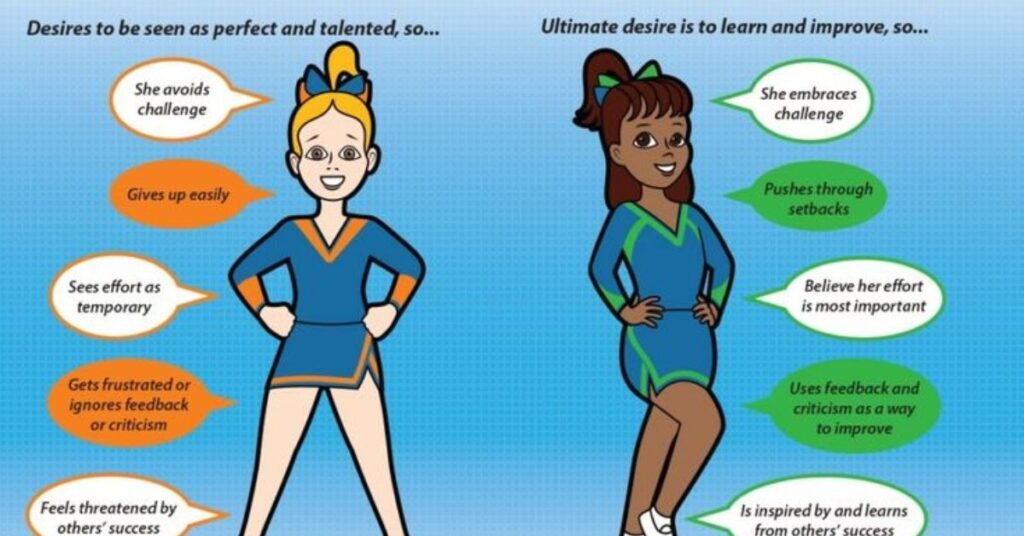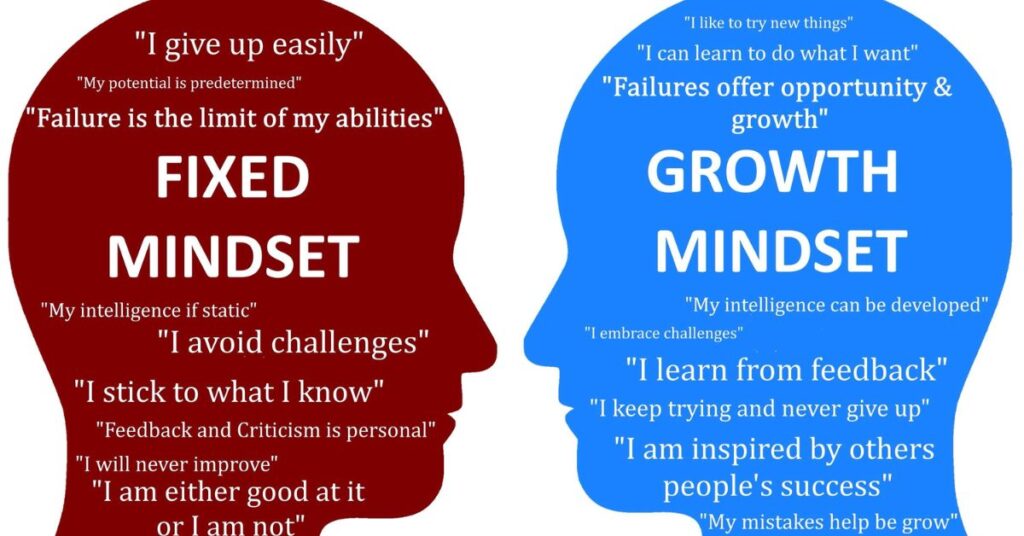A growth mindset is a powerful idea introduced by Professor Carol Dweck that has transformed how we understand learning and personal growth. It is the belief that abilities and intelligence can be developed through hard work, effort, and the right learning strategies. Unlike a fixed mindset, which views talent and intelligence as static traits, a growth mindset embraces challenges and sees failures as opportunities for improvement.
Adopting this mindset can reshape your approach to challenges and enhance your motivation and goals. Whether it’s in academics, career, or personal life, the ability to grow and adapt has lasting benefits. This article will explore how you can cultivate this mindset, drawing on mindset theory, examples, and practical steps.
Understanding the Concept of a Growth Mindset

The term growth mindset refers to the belief that one’s abilities are not fixed but can improve with perseverance and effective effort. Professor Carol Dweck developed this concept through her studies on intellectual abilities and the impact of mindset on learning. In contrast, a fixed mindset assumes that skills and intelligence are unchangeable, which often leads to avoidance of challenges and fear of failure.
This concept is deeply connected to the idea of neuroplasticity—the brain’s ability to adapt and grow when faced with new tasks. For example, a student who believes they can improve their math skills through hard work and better learning strategies is more likely to excel than one who believes their math ability is predetermined. This belief fosters resilience, self-confidence, and a willingness to step out of the comfort zone.
You may also read this blog:How to Build a Growth Mindset: Strategies, Myths, and Realities
The Importance Of Cultivating A Growth Mindset
Developing a growth mindset has numerous benefits. It boosts academic performance, enhances personal development, and builds resilience. People with this mindset view setbacks as part of the learning process, which creates a positive feedback loop of improvement. This outlook encourages them to take on challenges and push their boundaries.
For example, research shows that students who embrace a growth mindset often outperform their peers in school. This is because they view feedback as an opportunity to improve rather than a criticism of their abilities. In the workplace, this mindset can lead to innovative problem-solving and better collaboration, as employees become more adaptable to change and focused on skill development.
Can You Develop a Growth Mindset?
Yes, anyone can cultivate a growth mindset with the right approach. Studies on mindset intervention reveal that even small changes in perspective can make a significant difference. For instance, teaching students that intelligence is malleable improves their engagement and success in school. Similarly, adults can change their outlook by challenging limiting beliefs and embracing the idea of lifelong learning.
A common misconception is that a growth mindset is innate or requires extraordinary willpower. In reality, it is a skill that develops over time with practice and reflection. The key lies in recognizing moments when a fixed mindset creeps in and consciously choosing to reframe those thoughts.
How to Develop a Growth Mindset: Step-by-Step Guide
The path to a growth mindset involves several practical steps:
- Identify limiting beliefs: Pay attention to thoughts like “I can’t do this” and reframe them as “I can’t do this yet.”
- Embrace challenges: Take on tasks that push you out of your comfort zone and view failures as learning opportunities.
- Cultivate resilience: Use setbacks to build mental strength and focus on the process rather than the outcome.
- Seek feedback: View constructive criticism as a tool for growth and self-improvement.
- Surround yourself with positive influences: Engage with people who value personal growth and encourage you to succeed.
Incorporating these steps into your daily life fosters a continuous process of growth and improvement, reinforcing the belief that effort and perseverance lead to success
Real-Life Growth Mindset Examples
Real-world examples illustrate the transformative power of a growth mindset. Consider the story of Thomas Edison, who famously said, “I have not failed. I’ve just found 10,000 ways that won’t work.” His perseverance exemplifies the essence of embracing failure and seeing setbacks as opportunities to learn.
Similarly, businesses like Microsoft have integrated growth mindset principles into their culture. By encouraging employees to view mistakes as chances to innovate, they have fostered an environment where creativity and skill development thrive. These examples highlight how adopting this mindset leads to long-term success and improvement.
Final Thoughts
Cultivating a growth mindset is a journey that opens the door to endless possibilities. It encourages resilience, fosters continuous learning, and transforms the way you approach challenges. By embracing the principles of mindset theory and implementing practical steps, you can unlock your full potential.
Start small. Reflect on your own beliefs, take on new challenges, and celebrate progress. As you adopt a growth mindset, you’ll discover that the path to improvement is not just about reaching a goal but about the growth you achieve along the way
FAQ,s
What is a growth mindset?
A growth mindset is the belief that abilities, intelligence, and skills can be developed through effort, practice, and perseverance.
How does a growth mindset difference from a fixed mindset?
A growth mindset embraces challenges and sees failure as an opportunity to grow, while a fixed mindset views abilities as static and avoids risks.
Why is adopting a growth mindset important?
It fosters resilience, encourages continuous learning, and helps you achieve long-term personal and professional goals.
How can I develop a growth mindset?
Embrace challenges, seek feedback, focus on the process, and view mistakes as valuable learning experiences.
Can a growth mindset improve performance?
Yes, by encouraging adaptability and perseverance, a growth mindset enhances problem-solving, creativity, and overall performance.







